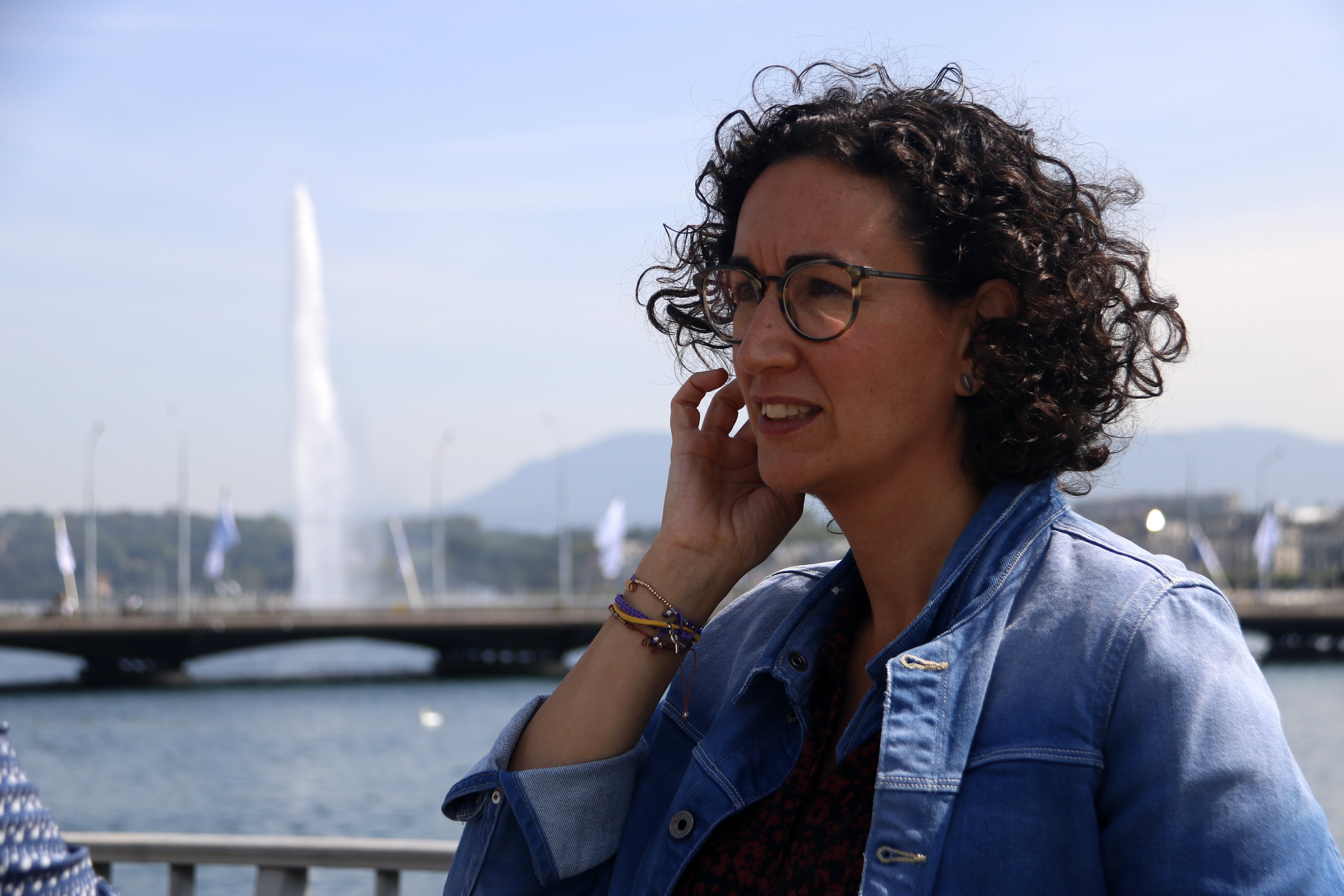It remains one of the great unknowns of the Catalan independence process: who was behind the anonymously-run protest platform Tsunami Democràtic, which emerged virtually overnight in 2019 at the time of the Supreme Court sentencing of the pro-independence leaders and called a series of anti-repression protests that had major impact? It is a question that has been subject to long and apparently inconclusive police and judicial investigation. But, for reasons that may be best known to those involved in the inquiries, it has been leaked to the digital newspaper El Confidencial that the National Audience court, after a police investigation, points directly to senior figures in the Catalan Republican Left (ERC) over the creation of this platform, which organized mass non-violent actions such as the independence movement occupation of Barcelona-El Prat airport on October 14th, 2019, and a month later, the blockade of the main French-Spanish border crossing in the Catalan Pyrenees, on the AP7 motorway. Specifically, the investigation of the Tsunami platform has been in the hands of the senior Spanish criminal court's central investigative chamber number 6, which has, according to the leak, identified the presumed leaders of this organization, ruling out that it was a spontaneous movement from civil society in response to the Spanish state's repression.
One name stands out from the rest according to the Civil Guard reports to which El Confidencial refers. It is that of the general secretary of ERC, Marta Rovira, who is alleged to have hidden her identity in the chats using encrypted messaging under the nickname of Matagalls, in honour of the mountain in the Montseny massif. During the holding of the Cims per la Libertat event in 2018 - a day of multiple mountain-climbs in Catalonia organized by the independence movement, Rovira chose this mountain, and as the Osona county-born politician has explained from exile, it is her favourite peak. According to the leaked Civil Guard report, Rovira's task consisted of obtaining consensus on the format and content of the Tsunami with the rest of the political parties and independentist organizations, as well as with the Catalan government presided over then by Quim Torra. Thus, the brain of Tsunami was - according to this Spanish police or judicial leak - not in Barcelona, but in Geneva, Rovira's place of residence in exile. There, at the end of August 2019, say the document, a month before the sentencing to jail of the nine political and civil leaders, she held a meeting in which Carles Puigdemont also allegedly took part, having travelled from Belgium, as well as former CUP deputy Anna Gabriel, also exiled in Switzerland. The authors of the report say that the Catalan politicians talked about the protest schedule and agreed on the total anonymity of the Tsunami.
Meeting of Rovira, Puigdemont and Gabriel in Switzerland
A few days later, Tsunami Democràtic officially presented itself on social media. It was September 2nd, 2019 and the platform called then to take back the initiative for "non-violence and civil disobedience" in response to the Supreme Court sentence, which was about to be published. At that time, the platform was presented as an initiative backed by key personalities from politics and civil society, with the support of the main pro-independence leaders of the moment, including Marta Rovira and Puigdemont. From that moment on, the initiatives began to emerge, through channels on Telegram and social media, with activity coming to a peak in October and November 2019.
The Civil Guard alleges that behind the Tsunami dissemination campaign, there were also ERC politicians and the businessman Oriol Soler Castanys. In 2020, the Barcelona investigative court number 1 ordered his arrest in the context of the wide-ranging Volhov operation of police searches, electronic surveillance and judicial testimonies, although all this ended up failing to press charges against the entrepreneur. Nevertheless, during his arrest, the hacking of computer equipment was key to understanding his alleged position in the Tsunami organization. According to the leaked reports presented to the National Audience, Soler used the pseudonym of Rigoberto and was going to be centred on the communication areas of the platform, using Telegram and other social media. The leaked material also speaks of Oleguer Serra Boixarda, whose nickname was Pere Carbasser, Xavier Vendrell Segura (known as Indigo and Escobar), Marta Molina Álvarez (Mandela) and Josep Campmajó Caparrós (Canalla).
Charges for crime of aggravated public disorder
At first, the National Audience treated the Tsunami inquiries, following the occupation of the Barcelona airport and the frontier blockade, as crimes of terrorism, on the grounds that they altered social peace and the constitutional order, disrupting important communication infrastructures. At the time, prosecution for sedition was also considered, but, with the recent reform of the Spanish Penal Code, eliminating this crime from the law books, it is expected that the court will pursue charges of aggravated public disorder, a crime which was created in the 2022 legal revision.

